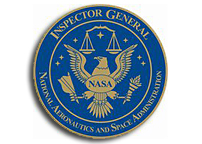NASA OIG: Costs Incurred on NASA’s Cost-Type Contracts

WHY WE PERFORMED THIS AUDIT
NASA spends over 75 percent of its appropriated funding acquiring goods and services, or $15.6 billion in fiscal year (FY) 2013. More than half of these FY 2013 funds were associated with cost-type contracts pursuant to which NASA reimburses contractors for allowable costs they incur producing or delivering the contracted good or service. Cost-type contracts pose a financial risk to NASA because they do not promise delivery of a good or service at a set price.
To mitigate the risk involved with the use of cost-type contracts, Federal regulation requires contractors to submit annual cost data commonly referred to as an incurred cost proposal for review and potential audit. Audits of incurred cost proposals assess whether costs contractors charge the Government are properly applied to the contracts, sufficiently supported, and allowable. NASA generally has 6 years to recover any unallowable costs from the date an adequate incurred cost proposal is submitted. The Defense Contract Audit Agency (DCAA) performs incurred cost audits for NASA under a reimbursable agreement and estimates it has a 6-year backlog of more than 19,000 proposals awaiting review, including 1,153 proposals related to NASA contracts, about 39 percent of which predate 2009. In an effort to reduce this backlog, in 2012 DCAA changed its methodology for determining which proposals to select for incurred cost audits.
We conducted this audit to examine whether NASA has established adequate procedures to ensure the costs contractors pass on to the Agency in cost-type contracts are supportable, allowable, reasonable, and allocable. Specifically, we reviewed NASA’s internal controls designed to prevent payment of excessive costs in these contracts.
WHAT WE FOUND
We found NASA is at increased risk of paying unallowable, unreasonable, and unallocable incurred costs and of losing the opportunity to recoup improper costs because Agency contracting officers rely too heavily on DCAA’s incurred cost audit process. Under its new, risk-based methodology, DCAA has significantly decreased the number of contractor proposals it audits in an effort to reduce its 6-year backlog of incurred cost proposals awaiting review. However, NASA contracting officers generally wait for a DCAA audit and do not perform additional oversight to ensure the appropriateness of contractor costs. Meanwhile, the Agency has not strengthened its internal controls to account for the significant reduction in DCAA oversight of Agency cost-type contracts. In addition, NASA’s reliance on DCAA is inhibiting the Agency’s efforts to timely close out awards, which further delays the identification of questionable costs and limits availability of excess funds for other uses.
WHAT WE RECOMMENDED
To strengthen internal controls, we recommended the Assistant Administrator for Procurement: (1) revise the NASA Federal Acquisition Regulation (FAR) Supplement to allow independent public accounting firms to provide supplemental audit coverage for NASA contracts where DCAA cannot be responsive to NASA’s need for an audit; (2) enhance NASA’s existing review of NASA forms 533M, 533Q, and/or vouchers to require periodic sampling and obtain detailed supporting documentation to validate the accuracy and completeness of information reported; (3) strengthen controls to ensure NASA contracting officers are performing and documenting periodic compensation reviews for cost- reimbursement service contracts with a potential value in excess of $500,000 at least every 3 years; (4) require contracting officers to communicate with DCAA and obtain and document in the contract file the status of any incurred cost audits and, if an incurred cost audit has not been performed, require the contracting officer to document the reasons and obtain information on if or when it will be completed; and, (5) in concert with the other recommendations, develop a methodology (statistical sample or risk-based approach) for increasing audit oversight of incurred cost proposals that do not meet DCAA’s parameters for review.
In response to a draft of our report, the Agency’s Assistant Administrator for Procurement concurred with recommendations 1, 3, and 4 and described planned corrective actions to include revising the NASA FAR Supplement to clarify when contracting officers are permitted to use outside firms to supplement DCAA audit services and reminding them of the importance of obtaining and documenting the status of DCAA audits. Because we consider the Assistant Administrator’s proposed actions responsive to these recommendations, the recommendations are resolved and we will close the recommendations upon verification of the completed actions.
The Assistant Administrator partially concurred with recommendations 2 and 5, agreeing that contracting officers should review vouchers and request additional supporting documentation from the contractor when appropriate, but expressing concern about the Office of Procurement committing to the development of a statistical sample or risk-based methodology without input from the Office of the Chief Financial Officer. Accordingly, the Assistant Administrator said the Office of Procurement would work with the Office of the Chief Financial Officer to perform an assessment of the feasibility and utility of developing such a methodology. We consider the proposal to conduct this assessment responsive and therefore the recommendations are resolved. We will close the recommendations after reviewing the actions NASA takes as a result of the assessment.








